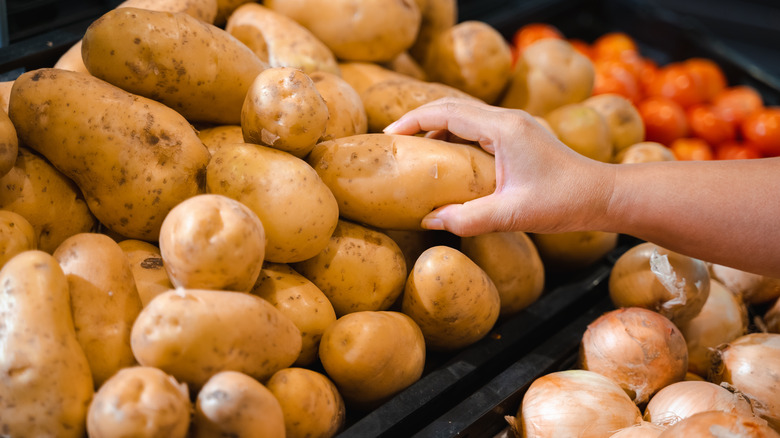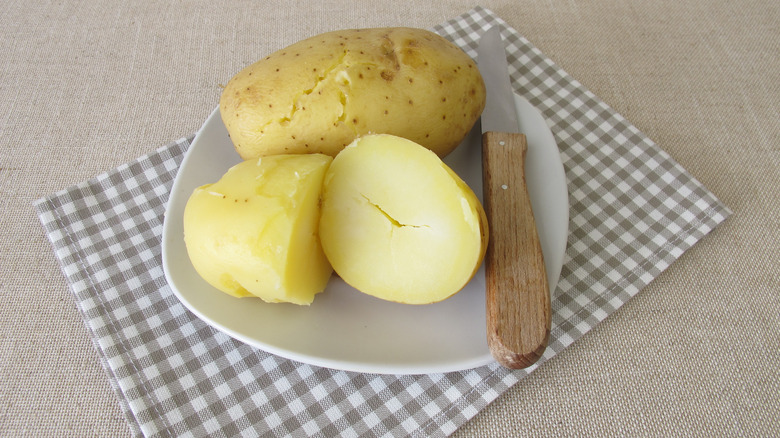Potatoes Can Help Your Gut Health More Than You Think
Potatoes sometimes get a bad rap because they are a starchy carb, but they really don't deserve much hate. Aside from being versatile, they contain several nutrients essential for good health. A large russet potato contains a whopping 98% of the recommended daily intake of vitamin B6 for adults, a nutrient that helps your cells communicate. The same potato contains 23% of the RDI of vitamin C for women and 28% for men. Vitamin C might help prevent some diseases like cancer while reducing the risk of stroke. This vitamin also helps support metabolism and bone health. Potatoes also contain 26% of the RDI of potassium, which helps your muscles and cells function (via SFGate).
On top of that, potatoes contain about 4 grams of fiber, which is good for a healthy bowel. Fiber may even help control cholesterol and blood sugar levels, per Mayo Clinic. And if that's not enough, they also contain a special compound that is good for your gut.
Potatoes contain resistant starch
What makes potatoes especially good for your gut is a compound called resistant starch. Resistant starch is good for your intestines because the small intestines don't digest it. When it gets to the large intestine, it takes on the role of a probiotic, feeding bacteria. Well+Good explains that resistant starch is practically a fiber in this sense. As the bacteria feed on it, it ferments, creating the compound's short-chain fatty acids. One of these short-chain fatty acids, butyrate, acts as fuel for your gut. Not only that, but it helps manage inflammation while protecting the lining.
The best way to cook potatoes to get the most nutrition is to bake them. Cooled potatoes have more resistant starch than warm ones. To get the most resistant starch, let potatoes sit in the fridge for a few hours. You can reheat potatoes after letting them cool, but this will reduce the amount of resistant starch in them.


